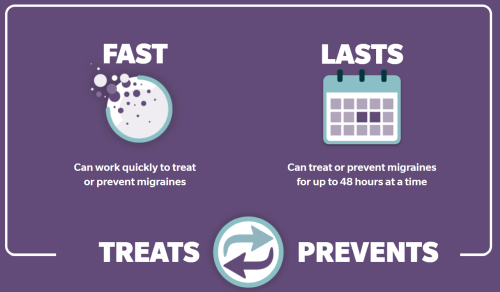Is This Why Aimovig Won’t Work For You?
Aimovig (erenumab) has been a great help for many migraine patients, but not all. Do we know of any reasons why it doesn’t work with some people?

A good doctor doesn’t want to randomly throw medications in your direction, trying on after the other. A good doctor knows which drugs have good scientific evidence behind them, and if possible which seem to work best for a patient like you – perhaps someone with your symptoms, or your lifestyle, or your medical history.
Now we all know that each person is very different and complex, so we will never type in “10 facts about Me” and have the computer spit out the perfect treatment. But we do have some clues once in a while that help us choose one treatment over the other.
Last year at the 62nd Annual Scientific Meeting of the American Headache Society, a report was presented entitled “CGRP Monoclonals: Efficacy, Side Effects, and Switching”. It attempted to start answering questions about which CGRP related medications were good for whom, and whether or not a patient should consider switching. Another concern is that more side effects were showing up in the real world than had shown up in clinical trials (not uncommon, but something to watch).
There were a couple of interesting notes in particular regarding erenumab, brand name Aimogvig.
First, and not surprisingly, patients with “moderate or severe refractory chronic migraine” were less likely to be helped. That is, those with significant chronic migraine that has not responded to several other common treatments. However, if patients had “mild refractory chronic migraine”, the medication may help.
The second predictor that Aimovig may not work was that the patient was taking opioids.
Opioid medications have helped many migraine patients, but must be used with extreme care because they are notorious for making the migraine condition worse. Occasional or very temporary use may be helpful for pain, but there are usually better options.
So for some reason, patients taking opioids were less likely to benefit from erenumab. This raises an interesting question – if patients stopped taking opioid medications for several months, might they be able get more benefit from Aimovig? Or, if they stopped taking opioids upon starting Aimovig, would symptoms improve several months later?
For the average patient, the study found that most patients could tell after a couple of months if Aimovig was going to be worth it for them. (A good rule of thumb for most treatments is to try them for three months.)
And what about trying a different but similar medication? In this small study, there did not seem to be a general benefit – but remember, for an individual, it may be worth it. The study did note that some patients did switch because of financial reasons, and “more than half of the patients did well”.



